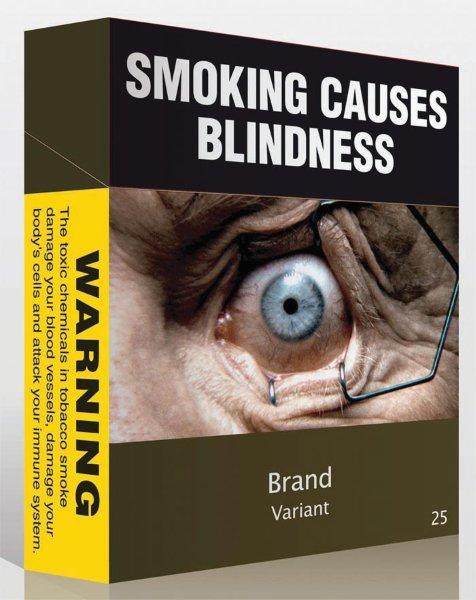The United Kingdom will follow Australia’s lead and become the second country in the world, and the first in Europe, to introduce plain packaging of tobacco.
On May 19, 2016, the UK High Court rejected a legal challenge by Philip Morris International (PMI) and other major tobacco companies which had sought a court ruling on whether regulations were a proportionate public health measure and compliant with English law.
Following the court decision, the plain packaging measures will now proceed as planned. A one year phase-in period will provide supermarkets and stores time to sell off existing stock.
UK law requires that all cigarettes and RYO tobacco products manufactured in the UK must now include picture health warnings, which must cover 65 per cent of the front and back of every packet of cigarettes, with additional warnings on the top of the pack.
Promotional statements such as ‘this product is free of additives’ have also been banned. The new rules also require warnings for e-cigarettes and limits e-cig nicotine levels to 20g.
France has also begun the process of introducing plain packaging. Ireland is expected to follow at a later date.
PMI on UK decision
Despite expressing disappointment with the decision, PMI said it will not appeal the ruling.
Marc Firestone, senior vice president and general counsel of PMI, said the court’s reasoning relies heavily on a 2006 decision by a judge in the United States in a case about US law to which PMI was not even a party, and did not concern plain packaging.
“In conflict with basic rules of procedure, the court relied on that case even though it was not included in the parties’ bundles of authorities, and the parties were not asked to address it at the hearing. This surprising departure from basic principles of English law raises serious questions about the process, and undoubtedly presents strong grounds for appeal,” Firestone said.
“The broader question, however, is what actions make the most sense for the 7 million adult smokers in the UK. Despite the important principles in this one case, we’ve decided not to appeal.
“We will instead maintain our focus on efforts to develop and commercialise scientifically substantiated reduced-risk products that we firmly believe will ultimately benefit UK smokers and public health much more than plain packaging.”
Australian experience
Australia’s plain packaging changes were brought into effect in December 2012. A Post-Implementation Review (PIR) conducted by the Australian Department of Health in early 2016 claimed that in the three years following the introduction of plain packaging, there was a steady decline in smoking over the past three years, from 19.4 per cent to 17.2 per cent.
The debate in Australia around the issue continues to rage with tobacco companies, including British American Tobacco Australia (BATA) claiming the review “did not provide any conclusive evidence [plain packaging] has worked”.

